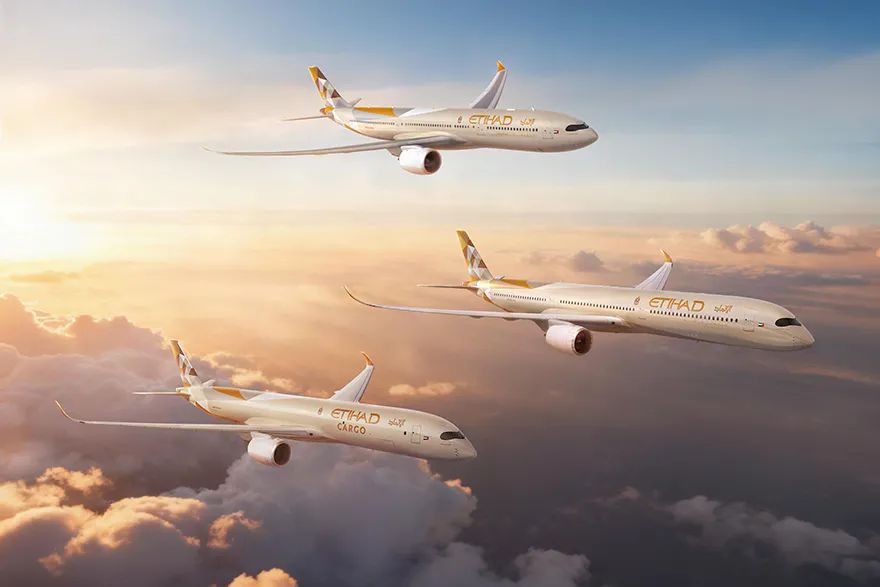 Photo: Etihad AirwaysEtihad Airways
Photo: Etihad AirwaysEtihad Airways has confirmed a major expansion of its
Airbus widebody fleet with a firm order for six A330-900 aircraft, making the airline the latest customer for the A330neo. The carrier has also disclosed an order for seven additional A350-1000s, taking its total for the type to 27, and three A350F freighters, increasing its A350F commitment to 10 aircraft. The agreement was signed at the
Dubai Airshow, where Etihad also announced plans to lease nine A330-900s from Avolon.
Antonoaldo Neves, Etihad Airways’ CEO, said: “These aircraft strengthen our operations across medium-haul, long-haul, and cargo. The A330neo brings the right combination of efficiency and flexibility for our regional and mid-range growth, while the A350-1000 continues to deliver exceptional performance on our long-haul network. The A350F freighter adds significant capability to our cargo division as global demand continues to expand. Our partnership with Airbus continues to play an important role in shaping our future fleet, and we are proud to be building one of the world’s most modern and efficient widebody operations.”
Shared visionBenoît de Saint-Exupéry, Airbus executive vice president sales for the commercial aircraft business, said: “Etihad Airways’ continued investment in our latest-generation widebody aircraft is a testament to the strength of our partnership and the shared vision we have for the future of aviation in the UAE and beyond. The combination of the A350 Family and A330neo will deliver unmatched efficiency and flexibility to Etihad’s operations, supporting its future development.”
The A350 is designed to fly up to 9,700 nautical miles non-stop and incorporates advanced aerodynamics and lightweight materials, delivering a 25% advantage in fuel burn, operating costs and CO
2 emissions compared to previous-generation competitor aircraft. The A350F freighter features the largest main deck cargo door in the industry and is the only freighter that will fully meet ICAO’s enhanced CO
2 emissions standards coming into effect in 2027. Assembly of test aircraft is currently underway in Toulouse.
Powered by
Rolls-Royce Trent 7000 engines, the A330neo offers a range of up to 8,100 nautical miles and reduces fuel burn, CO
2 emissions and operating costs by 25% compared to previous-generation competitor aircraft. The aircraft also features Airbus’s award-winning Airspace cabin.
Both the A330neo and A350 families can operate with up to 50% Sustainable Aviation Fuel (SAF), with Airbus targeting 100% SAF capability by 2030. At the end of October 2025, the A350 Family had secured more than 1,400 orders from 64 customers, while the A330 Family had won over 1,900 orders from more than 130 customers worldwide.